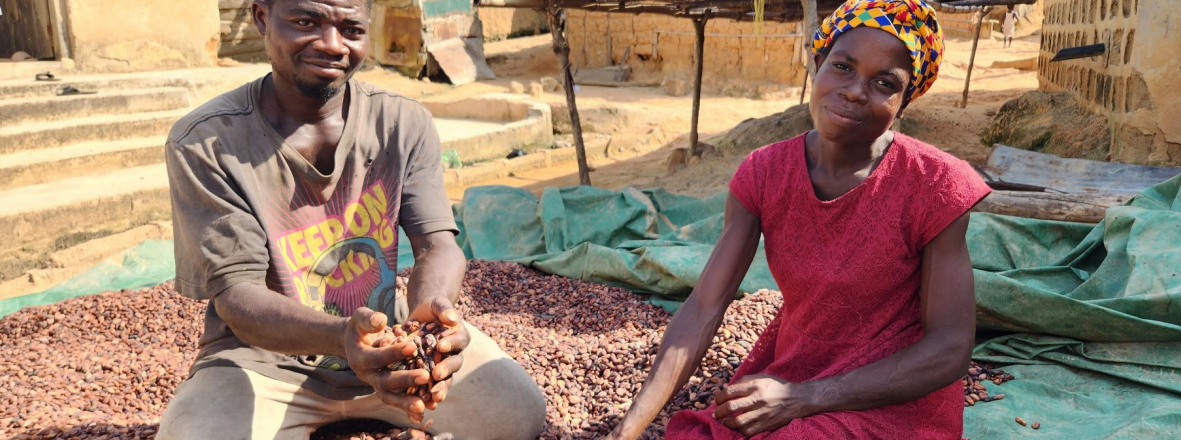Introduction
The United States Agency for International Development (USAID) is working with Ecom Agroindustrial Corp. (ECOM), a global commodity trading and processing company specializing in coffee, cocoa, and cotton, to strengthen women’s land rights and economically empower women in the cocoa value chain in Ghana.
An initial gender assessment showed that cocoa is considered a man’s crop, and gender inequality is pervasive in the cocoa sector in Ghana. Although women are involved in nearly all activities of cocoa production, their role and contributions remain unseen, undervalued, and often unpaid. This is caused by a combination of unequal access to productive resources, unbalanced power relationships, and harmful gender norms.
Because women typically do not own land independently, they are often not perceived as farmers by themselves or others and have low representation in cocoa producer groups, which are an important vehicle for receiving inputs, extension services, financial services, and technology. Division of labor in cocoa-farming households is highly gendered, with activities with social and economic value reserved for men. Women are primarily responsible for unpaid household and caring tasks and have less availability to work in cocoa farming (producing less cocoa as a result), attend training, and engage in income diversification activities. Women have little to no involvement in the sale of cocoa and limited decision-making power over the use of income from cocoa production.
Evidence from other women’s empowerment initiatives has shown that empowering women in the cocoa value chain leads to increased productivity. To that end, it is critical to shift harmful gender norms on division of labor, resource access and control, decision-making power, and gender-based violence. This will allow women, cocoa farming families, and the cocoa sector more broadly to enjoy greater equality and productivity.
ECOM provides regular Good Social Practices (GSP) training to men and women farmers, with the goal of promoting well-being and social development in cocoa communities. This manual is a tool for integrating gender norms change content into GSP training to foster dialogues about harmful gender norms at the household level, where most decisions about cocoa farming are made. This effort will enhance ECOM’s position as an industry leader in gender-responsive and inclusive business models that bring social and economic benefits for farmers and companies, improving women’s empowerment, productivity, profitability, compliance with sustainability goals, and positive brand image.


